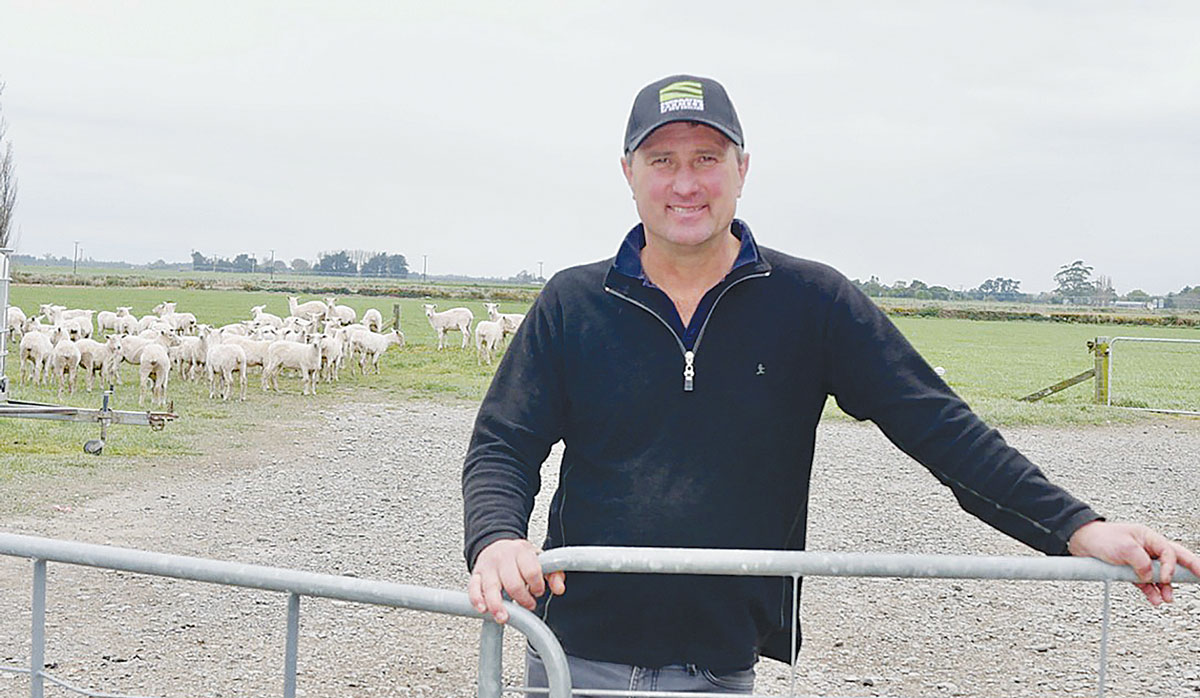Editorial: Having a rural voice
OPINION: The past few weeks have been tough on farms across the North Island: floods and storms have caused damage and disruption to families and businesses.
 Clayton Station farmer Hamish Orbell says alongside his management practices, it’s his friends, family and farming community that support him through drought. Photo: Supplied
Clayton Station farmer Hamish Orbell says alongside his management practices, it’s his friends, family and farming community that support him through drought. Photo: Supplied
As rain pours down on David Birkett's Leeston arable farm, he takes a sigh of relief ahead of the predicted dry summer.
But Birkett, who is also a Federated Farmers board member, says other farmers across the east coast aren't so lucky.
With an El Niño weather system on the horizon, agriculture leaders are stressing the importance of preparing for what NIWA is predicting to be our hottest summer yet, as sea temperatures exceed El Niño thresholds.
"The signals are really strong," says Birkett. "We need to be looking for those signals and putting the plans in place."
Director of rural communities and farming support at Ministry for Primary Industries Nick Story says Canterbury farmers in particular had been through drought in the past, so they were often well versed in how to deal with it.
One such farmer is the owner of Clayton Station in Fairlie - Hamish Orbell. His beef, sheep and deer property was hit twice by the country's last El Niño in 2015/16.
Without irrigation, Orbell finds pad feeding his animals from a mixer wagon, having plenty of silage on hand and destocking, to be the most effective and affordable thing to do in a drought. "A mixer wagon is huge to be able to utilise feed. It allows you to bulk up your silage with straw, molasses, urea and grain to give your stock a gut full... it gives you more bang for your buck."
El Niño sees temperatures peak 2-3°C above average, resulting in more frequent westerly winds and drier than normal summer conditions in eastern areas of the country. For east coast farmers, El Niño means drought is on the cards.
Birkett says this year was his wettest winter in about 12 years, so his tanks are full in every aspect. But just two weeks ago, the dust rolling across his crops would have said otherwise.
"We had two weeks of centrally norwest winds here, which dried the countryside right out very quickly. If that was an indication of what [El Niño] will look like; people will start irrigating pretty quickly."
These conditions prove how quickly drought can creep up on farmers, Story says. He adds that this abruptness stresses the need to have a plan in place.
"Planning is critical. Not just for the farmers and growers but also the harvesters; for the whole sector," he adds.
 |
|---|
|
Leeston arable farmer and Federated Farmers board member David Birkett has had his wettest winter in 12 years, so he feels prepared for the predicted El Niño this summer. Photo Credit: Eve Hyslop. |
Alongside irrigating efficiently, Story says farmers can prepare by feed budgeting, scheduling irrigation, setting feed targets, monitoring animal condition and maintaining moisture through direct drilling and the upkeep of soil cover.
Story encourages farmers to utilise NIWA's drought tool, which MPI invested $100,000 in alongside NIWA to help farmers and growers better prepare for periods of dryness and drought.
"That tool in place should really help farmers get the up to date information as it's critical you are in a position to make early decisions," he adds.
While the issue with El Niño is the dry spell, Irrigation NZ principal technical adviser Stephen McNally says howling gales are just as debilitating when considering costly damage to irrigation systems.
Birkett has experienced this first hand.
"If it's down and broken, it puts you in a worse position and that's when the stress really kicks in. You can't water and your crops are going backwards."
While farmers should tend to their land, equally as important is looking after themselves, Story adds.
"Another critical part is to make time for yourself, for your family, your staff and look out for your neighbours. It's always really important that a community can get through this together."
Could a breakthrough in fermentation create a new multi-million-dollar export market for shiitake mushroom extracts into China?
Meadow Fresh has created the world's first fantasy sports league powered by real cows.
This year, 'Foodie February' sees potatoes take the spotlight as one of New Zealand's most powerful and versatile food heroes.
A multi-cultural team is helping to establish one of New Zealand's largest plantings of premium eating grapes - while learning each other's languages and cultures along the way.
The World Wide Sires National All Day Breeds Best Youth Camp Best All Rounder plaudit has become family affair, with 2026 Paramount Cup winner Holly Williams following in her sister Zara's footsteps.
DairyNZ is giving New Zealand farmers a unique opportunity to gain hands-on governance and leadership experience within the dairy sector.